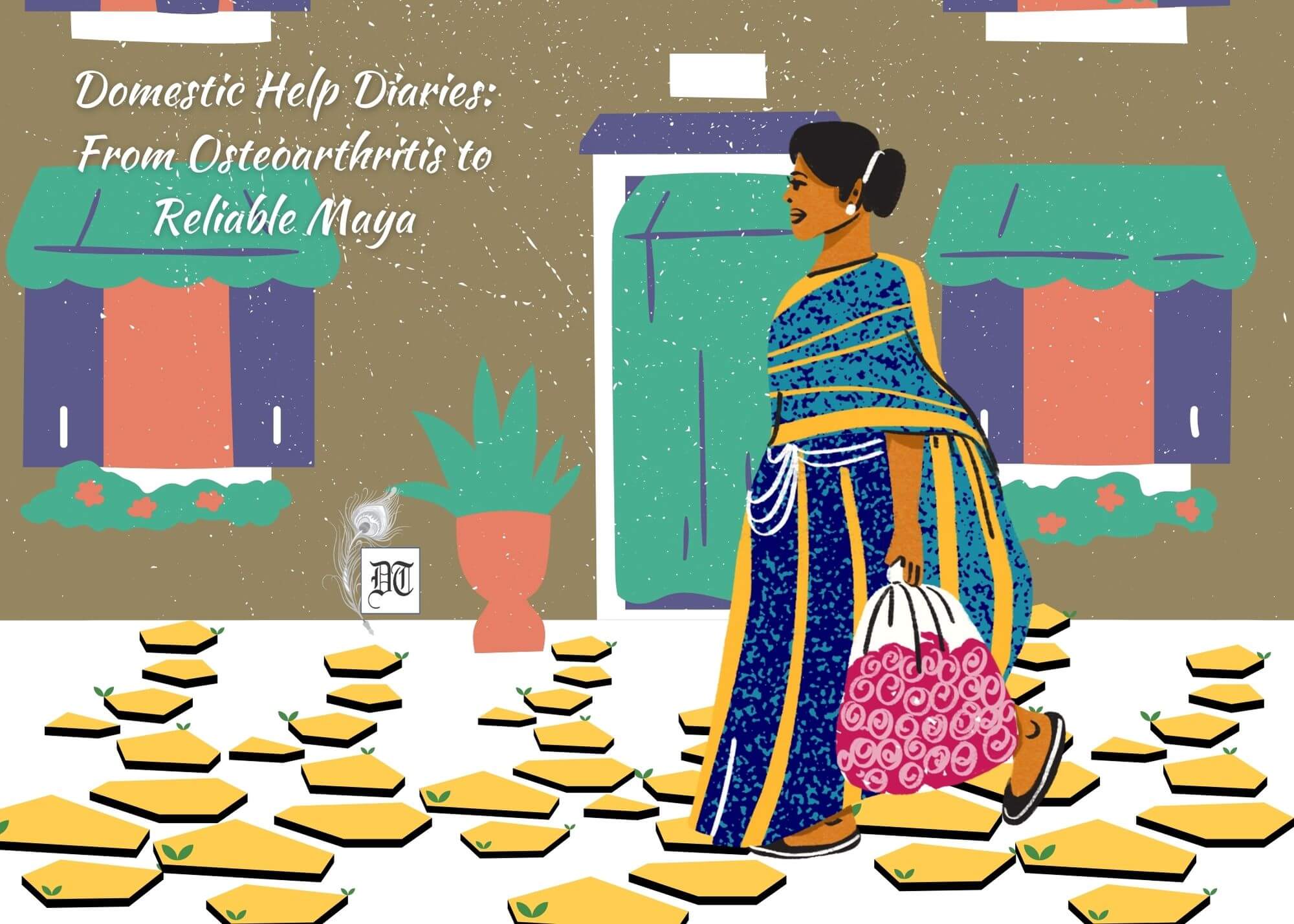Ruchira shares her experience with domestic help, ranging from taciturn Santosh to reliable Maya, exclusively for Different Truths.

For the average urban woman in India, and I am referring to both, i.e., the employed ones as well as homemakers—life virtually comes to a screeching halt when, one fine morning, the maid reports sick, is unavailable, or (worse) turns unreachable over the phone. Be confident that the rest of your day is going to be ruined. For now, you will need to tackle sweeping and swabbing all by yourself while not forgetting the humongous pile of pots and pans in the kitchen sink. In households where even laundry falls to the maid, and the weight of chores piles up unevenly.
My encounter with the so-called caregivers began merely a decade and a half ago. Before that, I would manage all the household chores single-handedly, juggling it with a full-time media job. It was only after osteoarthritis invaded both my knees that we decided to go in for part-time domestic help. The need was further intensified after a road accident in which I sustained a knee fracture and got laid up for several weeks.
My first maid ever was Santosh, who was a taciturn worker utterly devoid of frills and fuss…
My first maid ever was Santosh, who was a taciturn worker utterly devoid of frills and fuss of any kind. We seemed to have a roaring chemistry until the following Diwali. She had demanded a sari as a gift on that occasion. And we dutifully complied. But the moment I handed it to her, she began a series of histrionics.
“Such a cheap sari,” she ranted, “must be second-hand or a defective piece; behen ji (ma’am) I serve you so diligently and this is what I get in return? You are padhaa likha (educated) and kamau (earning), so spare a thought for the menials…” I firmly told her this was what we could afford, so take it or leave it. She piped down a little. Having completed her work, she picked up the parcel (containing the sari), tucked it under her arm and left for the day. For a few months thereafter, she performed her chores in a gingerly fashion and finally, after getting her salary disappeared for good.
The next maid I hired was a country clod named Bimla. She had four daughters, and each day one of the brats would accompany her; they would eye my daughter’s toys and I was chary that they might purloin them; thankfully that didn’t happen. An avaricious woman, she relieved us of old, frayed items of clothing each time she learnt that we had plans to give them away. Owing to certain circumstances she was asked to come in once a week and only on Sundays. But the crafty woman would conveniently bunk at least two of them. She would retort, “Kahin chale gaye thhey” (went someplace) with a nonchalant air upon enquiry. Would you believe she even cajoled the bhai saheb (my spouse) to split up her monthly salary and make fortnightly payments instead? Now whoever has heard about such an arrangement? Like her predecessor, she too disappeared when we returned from a vacation.
… Anju was a dignified girl with a highly professional attitude.
Next on the list, Anju was a dignified girl with a highly professional attitude. Her only flaw was turning up late quite often (I would get late for the office) for which I would admonish her. But she took it in good part. She left to get hitched.
There was this plump matronly woman by the name of Vaijayndri who was good at her work but worked as per her whims. If I spotted specks of dirt or dust under chairs, tables et al., and asked her to clean, she would feel offended and crib for a while. Aware of our hard-core non-vegetarian dietary habits she would often demand portions for men in her family, though she “didn’t touch” the stuff herself.
I truly consider it a blessing that Maya, my current part-time helper, has been with us for six-plus years…
I truly consider it a blessing that Maya, my current part-time helper, has been with us for six-plus years (and still counting). For a woman of her class, she is well-mannered, soft-spoken rather than garrulous, and avoids going into huddles with her peers to catch up with the latest gossip. She knocks before entering rooms and uses apt Angrezi (English) phrases from time to time. Her work has minimal flaws which may be glossed over.
So far so good. I keep my fingers crossed hoping this spell lasts…
Picture design by Anumita Roy






 By
By

 By
By
 By
By